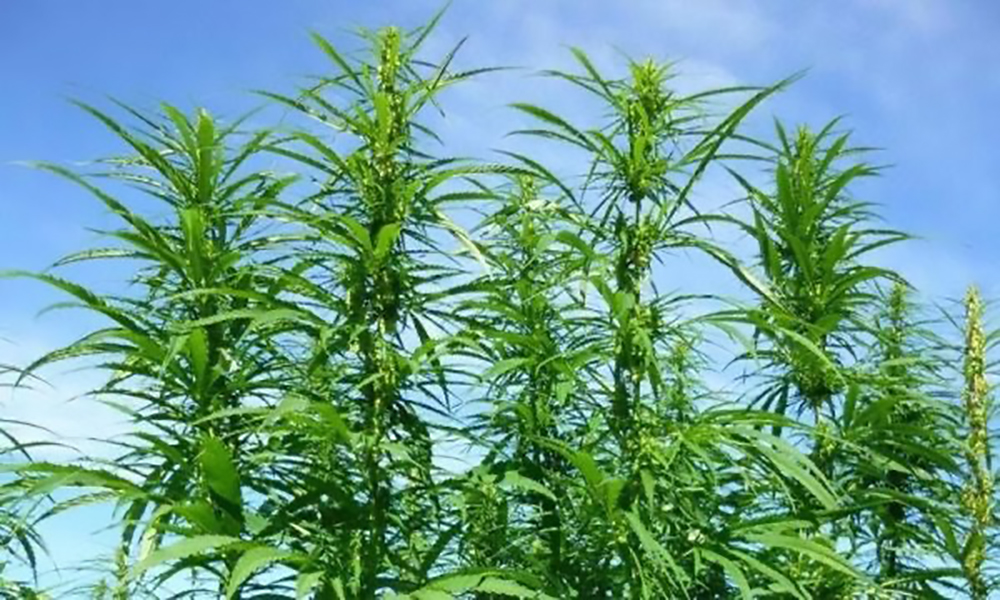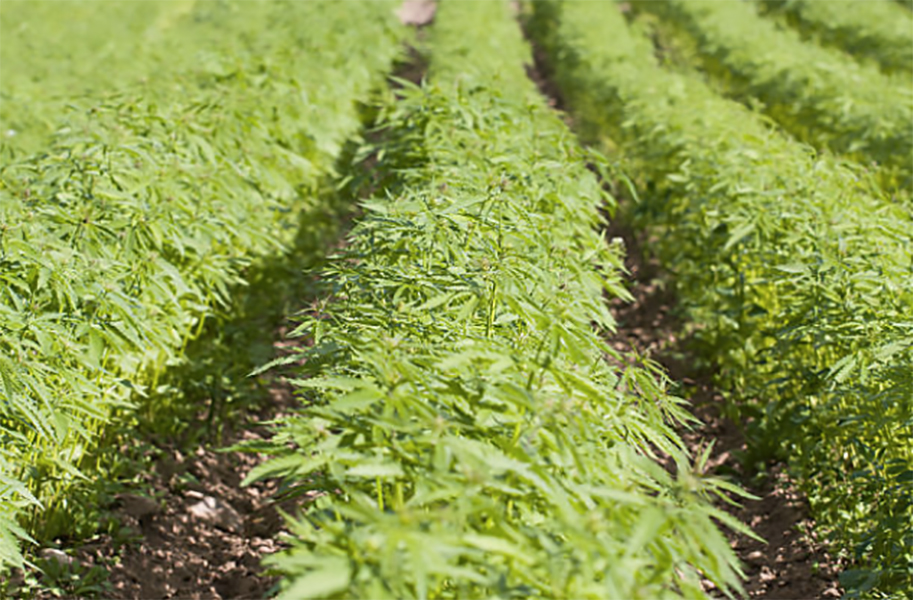
Industrial hemp cultivation might have a promising future next year in California despite all the bureaucratic bungling.
When I published this column in April, Hemp is Legal, Now What, the state of industrial hemp cultivation in California was mired in legislative hiccups and confusion, particularly for farmers wanting to grow the crop.
But eight months later in November 2019, the outlook for hemp-growing and the manufacture and production of products using the crop looks much more promising.
For example, since April, the California industrial hemp industry has gained momentum, despite all the legislative hiccups and confusion. Third Quarter 2019 statistics from the California Department of Food and Agriculture (CDFA) show that the number of registered hemp growers in California have increased from a mere 74 in June 2019 to 292 as of the end of August 2019. Additionally, there are now around 629 registered hemp cultivation sites and 17,571 acres of hemp in cultivation by growers and seed breeders.
There’s good news for industrial hemp cultivation in California going forward into 2020 as well: Governor Gavin Newsom signed a bill into law at the end of the legislative session in October 2019 that could help clear up the bureaucratic mess that’s existed since it became legal to cultivate hemp nationally and in California in 2018.
The legislation, Senate Bill 153, authored by Senator Scott Wilk, R-Santa Clarita, ensures California law is in full compliance with changes to federal law regarding the cultivation of industrial hemp.
Since earlier this year state departments of agriculture are required to consult with the state’s governor and chief law enforcement officer to devise a state plan on industrial hemp and submit it to the secretary of the USDA for approval. A state’s plan to license and regulate hemp can only commence once the secretary of USDA approves the plan. Until the signing of SB 153 into law, California was out of compliance with this new rule. SB 153 ensures California is able to meet these requirements, which removes a major roadblock to the growth of hemp cultivation in the state going forward.
“SB 153 opens the door for California to take full advantage of the exciting opportunities industrial hemp offers our agriculture and manufacturing sectors,” Wilke told me. “Hemp is used in 25,000 different products, so the opportunities are endless in California,” he said.
Industrial hemp advocacy organizations like the California Hemp Association and the California Hemp Foundation believe the new law will help pave the way for major growth in hemp cultivation in California in 2020. In the state legislature, support for hemp is largely bi-partisan, with both Democrats and Republicans pushing for its growth in the Golden State.
In 2018, with the passage of SB 1409, California streamlined industrial hemp production rules and became compliant with then existing federal law. Subsequently, Congress passed, and the president signed, H.R.2, the Agriculture Improvement Act of 2018 (farm bill) in December 2018. This measure removed hemp from Schedule I controlled substances, making it an ordinary agricultural commodity.
One of the difficulties states have had since then is that the federal legislation that made hemp cultivation legal in the U.S. is murky, and the various federal agencies involved in its regulation aren’t fully in agreement on its interpretation.
Key is a disagreement between USDA and FDA on the use of CBD, which is derived from hemp, in food, drink and cosmetic products. The 2018 Farm Bill decriminalized hemp by removing it, but not marijuana, from the Controlled Substances Act. Unlike marijuana, hemp-derived CBD has only trace amounts of THC, the active ingredient in marijuana or cannabis that gets people high. CBD doesn’t get a person high. The FDA though, which has regulatory jurisdiction over consumable and cosmetic products, still considers hemp-derived CBD a controlled substance and therefore legally prohibits the use of it in consumable and cosmetic products even though retail store shelves throughout the country are filled with these products.
States like Kentucky, Oregon, Colorado and some others have passed legislation on the state level that allows them to at least in practice circumvent this federal interagency regulatory dilemma. FDA has in some cases pulled hemp-derived CBD consumable products off store shelves, but the products largely remain in retail distribution, and are growing in number weekly on store shelves throughout the country.
Thus far, the California Department of Public Health (CDPH) has followed the FDA’s restrictions on CBD in food, beverages and cosmetics, even though hemp-derived CBD consumable and wellness products are in stores throughout California, including on the shelves of large chains like Walgreens, CVS Drug, Rite-Aid, Whole Foods Market and others. This has created immense confusion among businesses and consumers.
Following the lead of fellow western states Colorado and Oregon, California Assemblywoman Cecilia Aguiar-Curry, D-Winters, earlier this year introduced Assembly Bill 222 (AB 222), which would bypassed federal Food and Drug Administration prohibitions on hemp-based CBD in food, beverages and cosmetics, like the other states have done.
State lawmakers failed to decide on AB 22 though, which would have legalized the manufacture and sale of food, beverages and cosmetics that include hemp-derived CBD in California. The bill died in the Senate Appropriations Committee without a vote and with little public explanation.
Allowing the sale of these products is key to the growth of hemp cultivation in California because they’re the largest and fastest-growing segments of the market for products derived from industrial hemp. Farmers need a guaranteed market in order to have the incentive to grow hemp.
U.S. Secretary of Agriculture Sonny Perdue and GOP Senate Majority Leader Mitch McConnell have both recently said they want the FDA to reverse it’s prohibition against allowing hemp-derived CBD in food, drink and cosmetic products, since the 2018 Farm Bill was intended to make the sale of these products at retail legal. The FDA has started holding hearings into the matter but thus far isn’t showing signs of reversing its position any time soon.
As a result, The California State Legislature and Governor Newsom need to revisit AB 22 in the 2020 legislative session in order for the growth of industrial hemp cultivation to move forward in a real way in California. Manufacturing companies are going full-steam ahead with the production of CBD food, drink and cosmetic products, focusing their production in states like Colorado and Oregon where state laws that bypass the FDA rule have been passed. California is currently at a disadvantage.
Hemp cultivation in California looks more promising today than it did earlier this year. But the prohibition against selling hemp-derived CBD food, drink and cosmetic products remains a major hiccup to its growth. Like Colorado, Oregon and some other states, California should pass a law to bypass the FDA provision if the issue isn’t settled by USDA and FDA by early 2020. Once this major hiccup is removed, California farmers who want to grow industrial hemp will have a real incentive, the fast-growing CBD food, drink and cosmetic products market, to do so.








